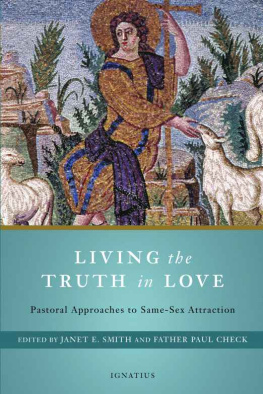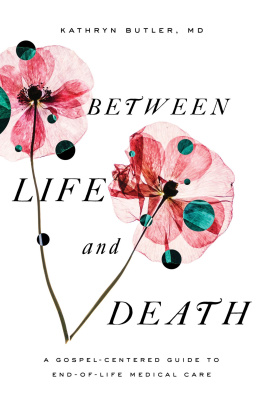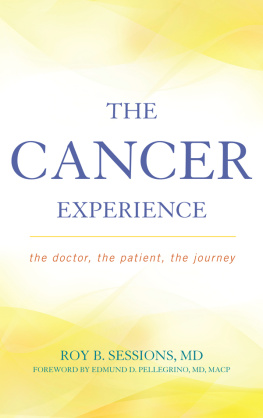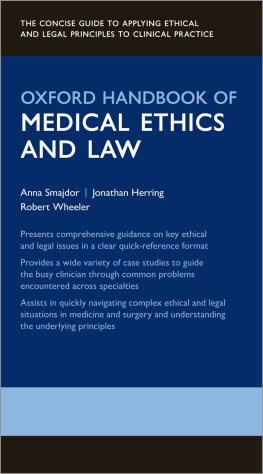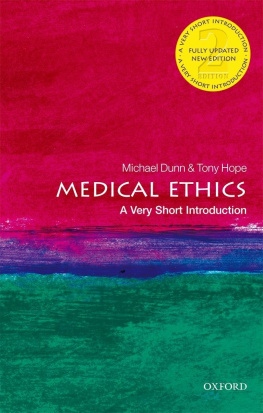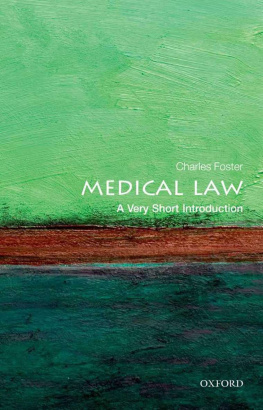Dedicated by Janet E. Smith to
Ralph McInerny, incomparable mentor and friend.
George, William, and John Paul.
you will never know the joy, the love beyond feeling that resonates in the heart of a father as he looks upon his son.
Contents
Preface | xv
Introduction | xvii
Chapter One: Fundamentals | 1
Question 1: How would one argue, from a philosophical point of view, that human life has intrinsic value? | 1
Question 2: Why do Catholics value human life so highly? | 4
Question 3: What is the meaning of suffering from a Christian perspective? | 8
Question 4: What does it mean to say that Catholics must follow their consciences? | 14
Question 5: Are Catholics always obliged to follow Church teaching? | 16
Question 6: If a Catholic in ignorance of Church teaching does something contrary to that teaching, such as using in vitro fertilization, does he or she sin? | 19
Question 7: What kinds of actions are intrinsically evil? | 22
Question 8: What does it mean to say that an action is a matter of prudential judgment? | 23
Question 9: What is the principle of double effect? | 24
Chapter Two: Beginning-of-Life Issues | 29
Question 10: Why is abortion wrong? | 29
Question 11: Defenders of abortion sometimes claim that abortion is safer than childbirth. Does this justify abortion? | 34
Question 12: Since an early embryo can split into twins, is an embryo really an individual? Before the brain develops, is an embryo really rational? | 37
Question 13: Since an embryo cannot experience pain until several weeks into the pregnancy, would abortion be moral before that time? | 39
Question 14: Would abortion to relieve the mental distress of a pregnant woman be moral? | 41
Question 15: Is it moral to have an abortion if the unborn child is handicapped? | 42
Question 16: Is it immoral to use excess embryos for research? | 43
Question 17: Which ways of treating ectopic pregnancies are moral? | 47
Question 18: Is it ever morally permissible to induce labor prematurely? | 49
Chapter Three: Reproductive Technologies | 53
Question 19: Which reproductive technologies are moral? | 53
Question 20: Do children have a right to know their biological parents? | 56
Question 21: Is cloning wrong? | 59
Question 22: Is it moral to have a baby in order to provide for the medical needs of an already existing child? | 60
Question 23: Is it morally permissible to adopt a frozen embryo? | 61
Question 24: Is it moral to attempt to have a child when genetic factors make it likely that the child may be mentally or physically handicapped? | 63
Question 25: Is it moral to try to select the sex of ones baby? | 64
Question 26: Are ovarian transplants morally permissible? | 65
Chapter Four: Contraception, Sterilization, and Natural Family Planning | 67
Question 27: Why does the Church teach that contraception is intrinsically immoral? | 67
Question 28: Isnt Natural Family Planning just another form of contraception? | 71
Question 29: If contraception is intrinsically evil, why does the Church permit women to take contraceptives for medical purposes? |
Question 30: Is it moral for spouses to use a condom if one of them has the human immunodeficiency virus (HIV)? | 76
Question 31: Is it morally permissible to have sex with a contracepting spouse? | 78
Question 32: Is it moral to use contraceptives as post-rape treatment? | 79
Question 33: Should parents have their daughters receive the vaccine for the human papillomavirus (HPV)? | 80
Question 34: Would it be moral to put a mentally handicapped woman on a contraceptive or have her sterilized if she is at risk of being sexually abused? | 81
Question 35: Is it morally permissible for a woman to be sterilized if her uterus is so damaged that she could not get through a pregnancy safely? | 82
Question 36: Are couples who have been sterilized morally obliged to get a reversal? | 83
Question 37: Are mothers morally obliged to breastfeed? | 85
Chapter Five: End-of-Life Issues | 89
Question 38: What is euthanasia? | 89
Question 39: Is there an ethical difference between active euthanasia (intending the death of the patient by some act) and passive euthanasia (intending the death of the patient by some omission)? | 90
Question 40: Is it always wrong to let someone die? | 91
Question 41: Is life always a good, even when it involves great suffering? | 92
Question 42: What is the Christian view of the relationship of the soul to the body, and how does it influence the moral evaluation of end-of-life treatments? | 94
Question 43: What is the difference between ordinary means and extraordinary means of preserving life? | 97
Question 44: Should food and water be provided for patients in a persistent vegetative state? | 100
Question 45: How should one respond to the request Will you help me die? | 102
Question 46: Are advance directives helpful? | 105
Question 47: Why does the determination of death matter? | 106
Question 48: What is brain death? Does the Church approve of using neurological criteria to determine death? | 106
Question 49: What is the non-heart-beating donor procedure for obtaining organs? Is it morally acceptable? | 111
Question 50: Do hospital futility policies accord with Catholic morality? | 112
Question 51: What is the sacrament of the sick? When should Catholics have recourse to it? | 114
Chapter Six: Cooperation with Evil | 117
Question 52: Sometimes health-care professionals are asked to perform actions that may make them guilty of cooperating with the evil actions of others, such as assisting in abortion. How do these workers know when they must refuse to do certain things? | 117
Question 53: Is it moral for a Catholic pharmacist to fill prescriptions for contraceptives? Is it moral for a Catholic nurse to give Depo-Provera shots? | 119
Question 54: What is scandal? In the practice of medicine, what kind of behavior causes scandal? | 121
Question 55: Is it moral to use vaccines that have been produced from aborted fetuses? | 124
Question 56: Is it morally acceptable to separate conjoined twins? | 126
Question 57: Is it moral to have a healthy breast removed because of a genetic propensity to breast cancer? | 128
Question 58: What if a patient cannot be persuaded to do what is morally correct? | 129
Question 59: Does a physician need to respect the decision of a Jehovahs Witness to refuse a blood transfusion? | 132
Question 60: What steps should a Catholic working at a Catholic hospital take in the face of evidence that the hospital or those working there are engaging in practices recognized by the Church as incompatible with true human dignity? | 135
Question 61: Is it moral for Catholic employers to cooperate with the HHS Mandate, requiring them to pay for health-care insurance plans that provide free contraception for all employees? | 137
Question 62: Should the law protect health-care workers who conscientiously object to abortion or contraception? | 142
Chapter Seven: Respect for the Body | 147
Question 63: Why are organ transplants moral? | 147
Question 64: Is sex-change surgery ethically permissible? | 149
Question 65: Is it wrong to get a tattoo? | 151
Question 66: Do parents have a right to refuse vaccines for their children if they believe the vaccines cause harm, such as autism? | 152
Question 67: Is circumcision moral? | 154
Chapter Eight: The Ten Commandments for Health-Care Professionals and Patients | 157
Helpful Resources |


